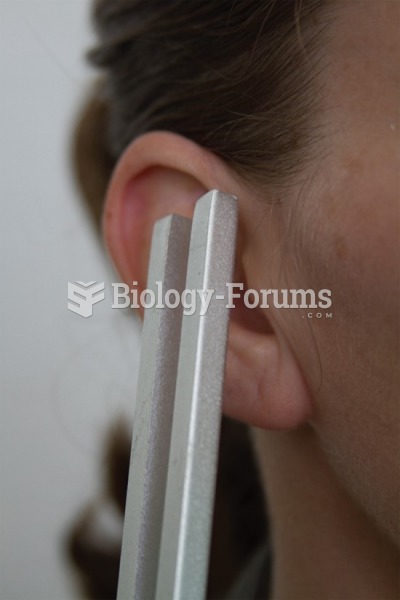Answer to Question 1
Correct Answer: 4
Rationale 1: These are not symptoms of otitis externa.
Rationale 2: These are not symptoms of labyrinthitis.
Rationale 3: The client was treated for otitis media. These are not symptoms of chronic otitis media.
Rationale 4: The symptoms the client is reporting are indicative of mastoiditis.
Global Rationale: The symptoms the client is reporting are indicative of mastoiditis. The client was treated for otitis media. These are not symptoms of chronic otitis media. These are not symptoms of otitis externa or labyrinthitis.
Answer to Question 2
Correct Answer: 4
Rationale 1: A dry mouth might be experienced when receiving an anticholinergic agent that is absorbed systemically.
Rationale 2: Blurred vision results from the pupils being dilated with this medication. Safety is a priority.
Rationale 3: The parasympathetic nervous system is responsible for normal autonomic control of the diameter of the pupil. When anticholinergic drugs are administered, this control is lost, and the pupil dilates. This increases the sensitivity to light, and the client will benefit from wearing dark glasses.
Rationale 4: Photosensitivity is an adverse effect of this medication, but it applies to the eyes being sensitive to light, not to the skin being susceptible to sunburn.
Global Rationale: Photosensitivity is an adverse effect of this medication, but it applies to the eyes being sensitive to light, not to the skin being susceptible to sunburn. Photosensitivity is an adverse effect of this medication, but it applies to the eyes being sensitive to light, not to the skin being susceptible to sunburn. A dry mouth might be experienced when receiving an anticholinergic agent that is absorbed systemically. Blurred vision results from the pupils being dilated with this medication. Safety is a priority. The parasympathetic nervous system is responsible for normal autonomic control of the diameter of the pupil. When anticholinergic drugs are administered, this control is lost, and the pupil dilates. This increases the sensitivity to light, and the client will benefit from wearing dark glasses.







